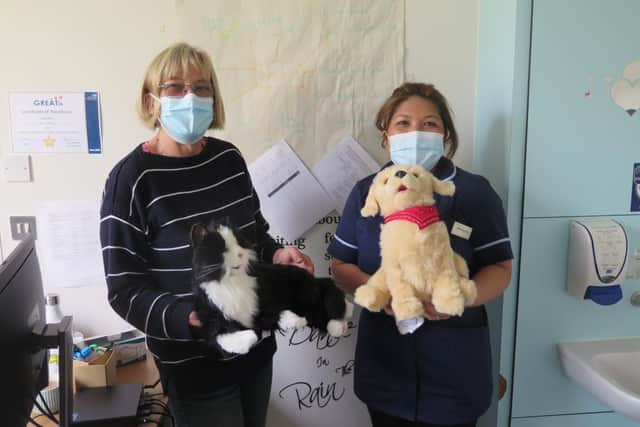Robopets to be provided to care home residents in Bedfordshire as part of £1.1million healthcare boost
and live on Freeview channel 276
Bedfordshire, Luton and Milton Keynes Integrated Care System’s (BLMK ICS) has been awarded £1.1million to boost its Digitising Social Care (DiSC) programme.
The funding, provided over 15 months, will be used to introduce new technologies as well as expand existing ones. They include:
Advertisement
Hide AdAdvertisement
Hide Ad> PainChek – an electronic device which helps to identify and manage pain for those who are unable to communicate it verbally. It measures small changes in facial expressions and voice to quantify a pain score and guide carers to provide the right support. The funding will enable around 1,000 residents in a variety of settings to be assessed by their care provider.


> Around 1,300 care home residents will be provided with a robotic companion to provide comfort and decrease loneliness. Robopets provide a calming influence, give people greater independence and confidence, and improve mental health and wellbeing.
Both innovations will improve wellbeing and quality of life for residents by reducing distress and anxiety, which will also be reassuring to their friends and families. Meanwhile, care quality and safety will be improved, as staff will have more time to focus on providing care and building relationships with residents and families.
Clare Steward, Digitising Social Care Programme Director, said: “We are very aware that depression, loneliness and dementia are real challenges for our ageing population, and are keen to invest in solutions that would help improve the quality of life of our residents and reduce pressure on care services.”
Advertisement
Hide AdAdvertisement
Hide Ad“Co-production and collaboration have always been very important to our team and, after looking at a number of potential innovations, we have worked closely with our stakeholders and local care providers to agree which two schemes would most benefit our residents and providers.”
Felicity Cox, chief executive at the BLMK Integrated Care Board, said: “We are extremely proud of the amazing work the DiSC programme has delivered so far to improve the quality of care our local residents receive. The technologies already introduced have been very successful in improving digital communications, monitoring resident health and preventing falls. We look forward to seeing the benefits the new technologies will bring for local residents and care providers.”